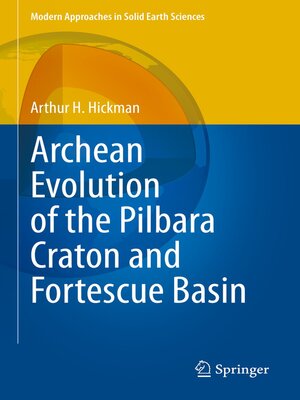Archean Evolution of the Pilbara Craton and Fortescue Basin
ebook ∣ Modern Approaches in Solid Earth Sciences
By Arthur H. Hickman

Sign up to save your library
With an OverDrive account, you can save your favorite libraries for at-a-glance information about availability. Find out more about OverDrive accounts.
Find this title in Libby, the library reading app by OverDrive.



Search for a digital library with this title
Title found at these libraries:
| Library Name | Distance |
|---|---|
| Loading... |
One of today's major geoscientific controversies centres on the origin of the Archean granite‒greenstone terranes. Is the geology of these scattered remnants of our planet's early crust consistent with the theory that modern-style plate-tectonic processes operated from the early Archean, or does it indicate that tectonic and magmatic processes were different in the Archean? Earth has clearly evolved since its initial formation, so at what stage did its processes of crustal growth first resemble those of today? The logical place to seek answers to these intriguing and important questions is within the best-preserved early Archean crust.
The Pilbara region of northwest Australia is internationally famous for its abundant and exceptionally well-preserved fossil evidence of early life. However, until recently the area has received much less recognition for the key evidence it provides on early Archean crustal evolution. This book presents and interprets this evidence through a new stage-by-stage account of the development of the Pilbara's geological record between 3.53 and 2.63 Ga.
The Archean Pilbara crust represents one fragment of Earth's oldest known supercontinent Vaalbara, which also included the Kaapvaal Craton of southern Africa. Recognition of Vaalbara expands the background database for both these areas, allowing us to more fully understand each of them.
The Pilbara region of northwest Australia is internationally famous for its abundant and exceptionally well-preserved fossil evidence of early life. However, until recently the area has received much less recognition for the key evidence it provides on early Archean crustal evolution. This book presents and interprets this evidence through a new stage-by-stage account of the development of the Pilbara's geological record between 3.53 and 2.63 Ga.
The Archean Pilbara crust represents one fragment of Earth's oldest known supercontinent Vaalbara, which also included the Kaapvaal Craton of southern Africa. Recognition of Vaalbara expands the background database for both these areas, allowing us to more fully understand each of them.







